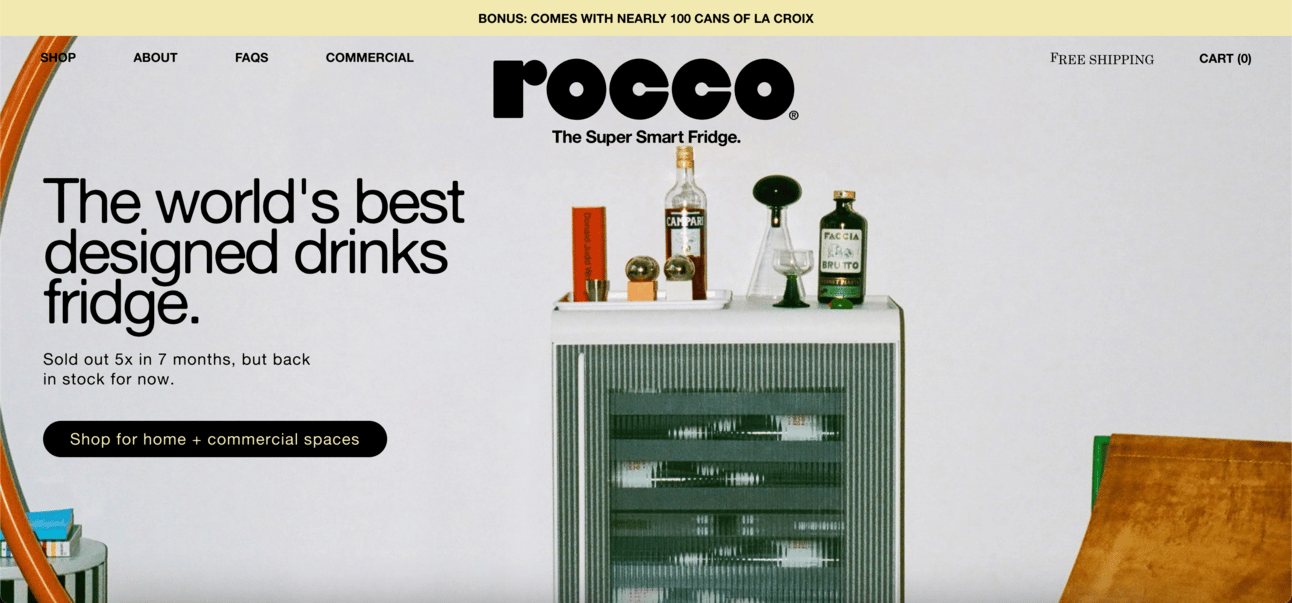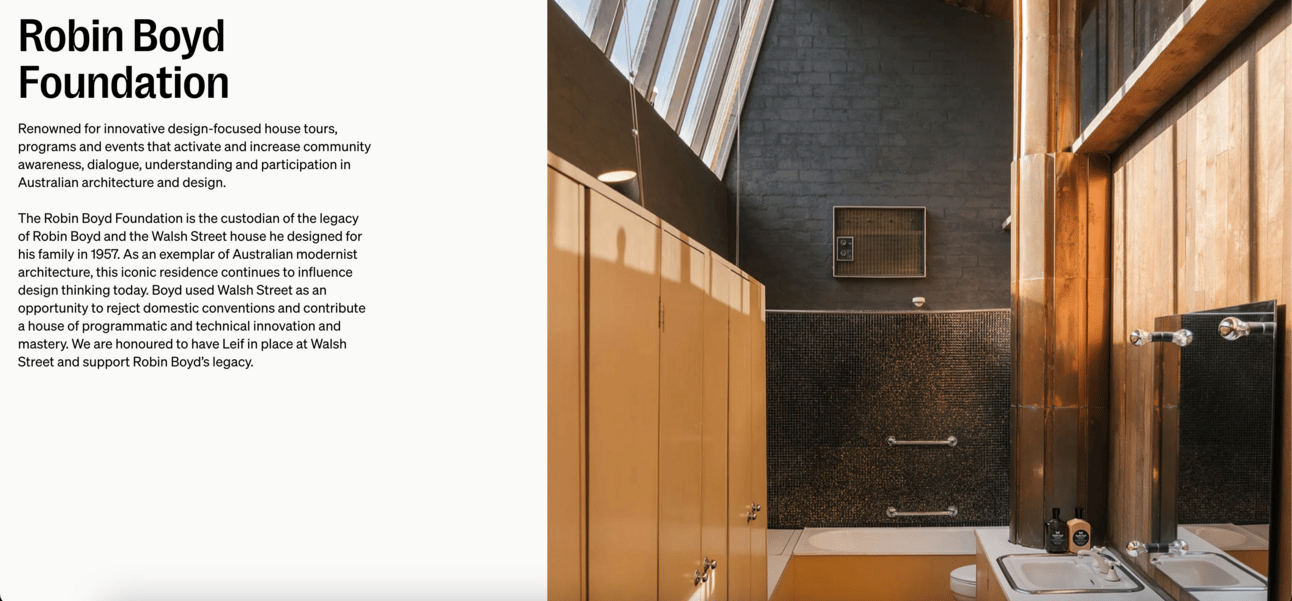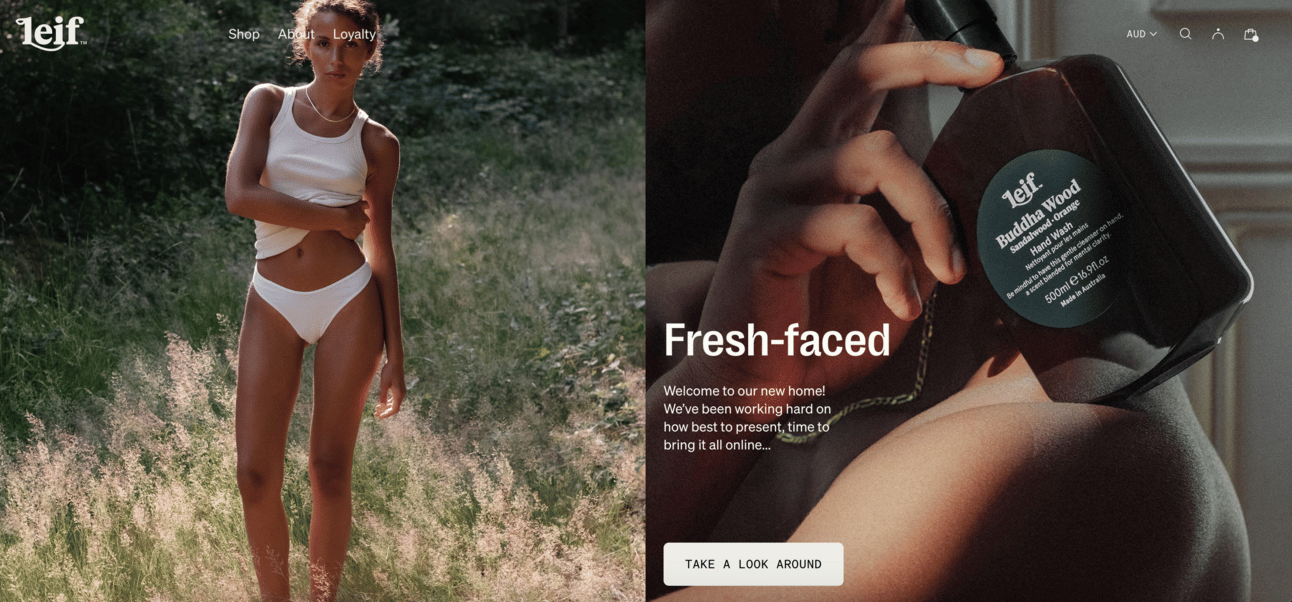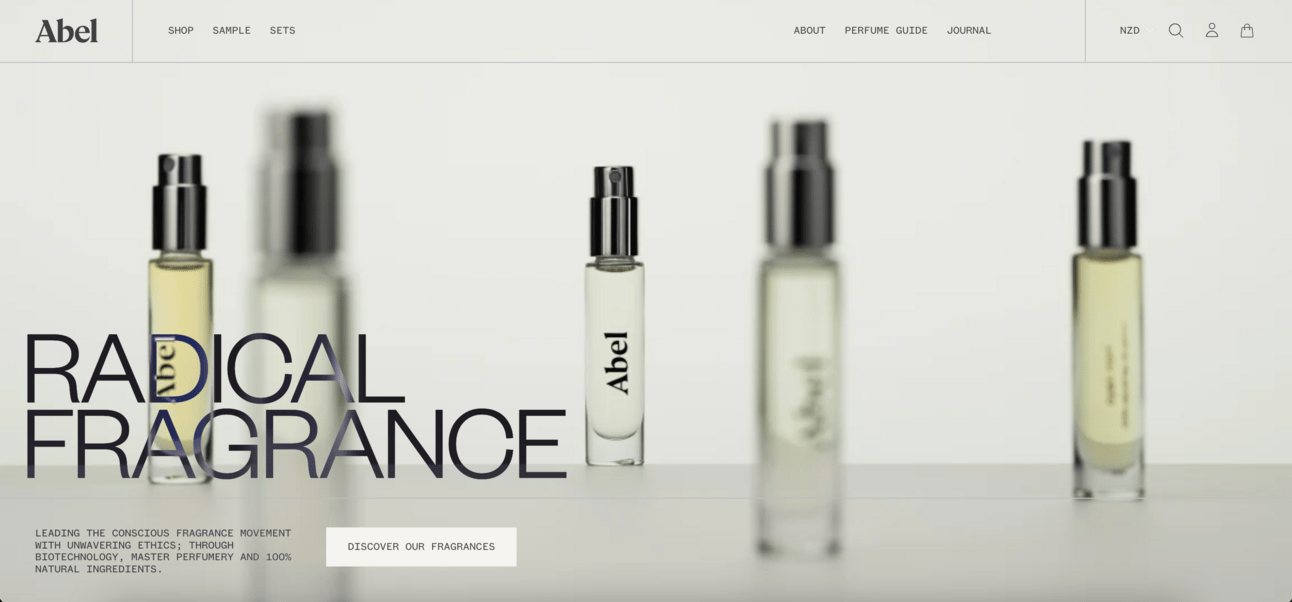Happy Friday!
Here at the studio, we’ve been working on a number of brand positioning projects lately. Maybe it’s the change in season, maybe it’s the promise of brighter days as we begin to come out the other side of the recession, but it seems a lot of brands are looking at how they can refine their identity to resonate more with their audience.
So today, I’m going to talk about a tried and tested tactic. It’s nothing new but in today’s climate, it’s more important than ever.
Here’s what I’ve got for you today:
Concept
💃 Less specs, more lifestyle
Studio News
📰 Smells like new launches
💃 CONCEPT
Less specs, more lifestyle
In today’s market, offering a great product isn’t enough anymore. As consumers long for deeper connections, brands have to go beyond selling features—they’ve got to sell a lifestyle.
I was reading this story about an American brand called Rocco that sells minifridges. The brand has seen wild success—not because the product is cool (literally), but because they’ve marketed it as more than just an appliance to keep your drinks cold.
In the article, the co-founder goes into 4 strategies to nail the positioning and storytelling—these can be applied to almost any product. Here’s the highlights reel:
Think beyond the product's primary use
Consider how your product can be used in other ways to appeal to a broader audience. In the Rocco example, they took the original idea—an aesthetically pleasing wine fridge—and thought about how it could apply to non-drinkers, furniture lovers and even health and beauty enthusiasts.
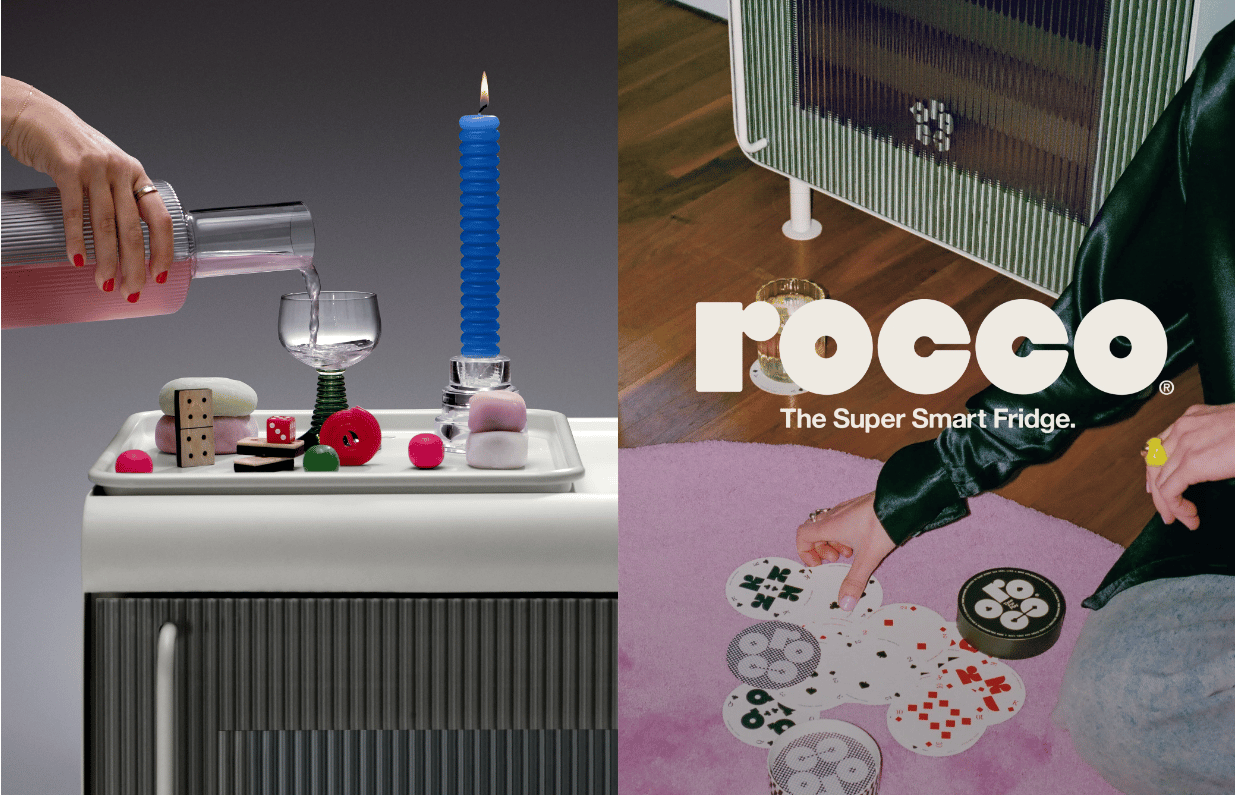
Source: Shopify Blog
Create a vibe
Rather than focusing on the product’s specs, highlight how the product can enhance a particular situation. Rocco focuses on social gatherings and interior design. They position it as a desireable furniture piece, taking pride of place in the living room. It just so happens to keep your drinks—alcoholic or otherwise—cold. Reframing the product this way makes the fridge seem fun, versatile and stylish—without having to say it.
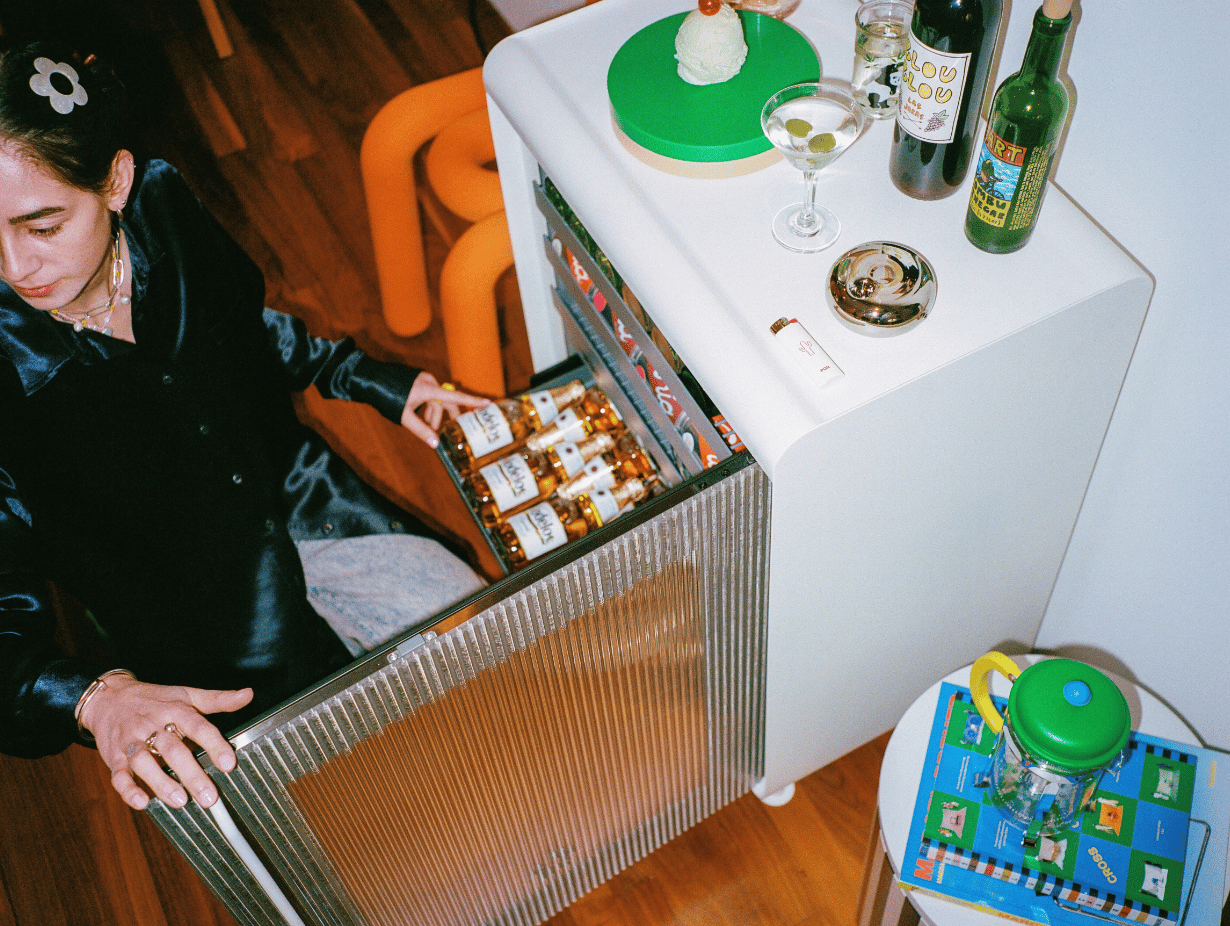
Source: Shopify Blog
Adapt to unexpected markets
Consider what other audiences could benefit from your product. Rocco explored businesses that needed fridges for client-facing spaces. This inspired a campaign showcasing the fridge in a variety of settings, from gyms to offices, helping expand its appeal beyond the home.
Leverage partnerships to benefit from a halo effect
Strategic partnerships create a mutually beneficial brand association. Rocco strengthened its lifestyle positioning by giving customers curated beverages for their minifridges. Not only does this delight customers and encourage conversion, it associates the fridge with desirable brands. Win-win.
Now for an example closer to home
As I was reading this case study, our client Leif came to mind. With a strong focus on design, they’ve made their hand wash and balms synonymous with beautiful interiors. Are they good products? Yes. Are they made more desirable by their strategic placement in designer hotels, Airbnbs and art galleries? Absolutely. The team at Leif understand the power of clever product placement, and their brand is all the better because of it.
Which brings me to this week’s studio news…
📰 STUDIO NEWS
Smells like new launches
This week, we launched Leif’s new Shopify Plus store and it’s well worth a visit. As a beauty brand born from product designers, the site is a celebration of form, scent, Australian botanicals and everyday luxury.
We worked closely with the team to develop a clear user journey, making their product range more discoverable while creating dedicated spaces for their unique story and sustainability initiatives to shine. It’s a design-led site with strategic information architecture at the centre of it, and it’s a joy to explore.
In equally exciting news, radical fragrance has a new home. At the end of September, we launched Abel’s new Shopify Plus store. The design and development of this project centred around Abel’s new positioning and visual identity. Like the brand, the digital experience is confident, edgy and emotive, showing that natural perfume doesn’t just stand up against its synthetic counterparts, it stands above it.
The site tackles the challenge of selling fragrance online through a number of educational and emotive tactics such as setting a mood, allowing users to explore by familiar notes, and comparing the scent profiles to well-known synthetic perfumes in the market. It’s an experience fitting for the pioneers of natural perfume, and we loved being a part of the journey.
That’s all from me this week.
Have a great weekend and thanks for reading!
Until next time.


Alex Murton
Managing Director & Co-Founder
Studio Almond


